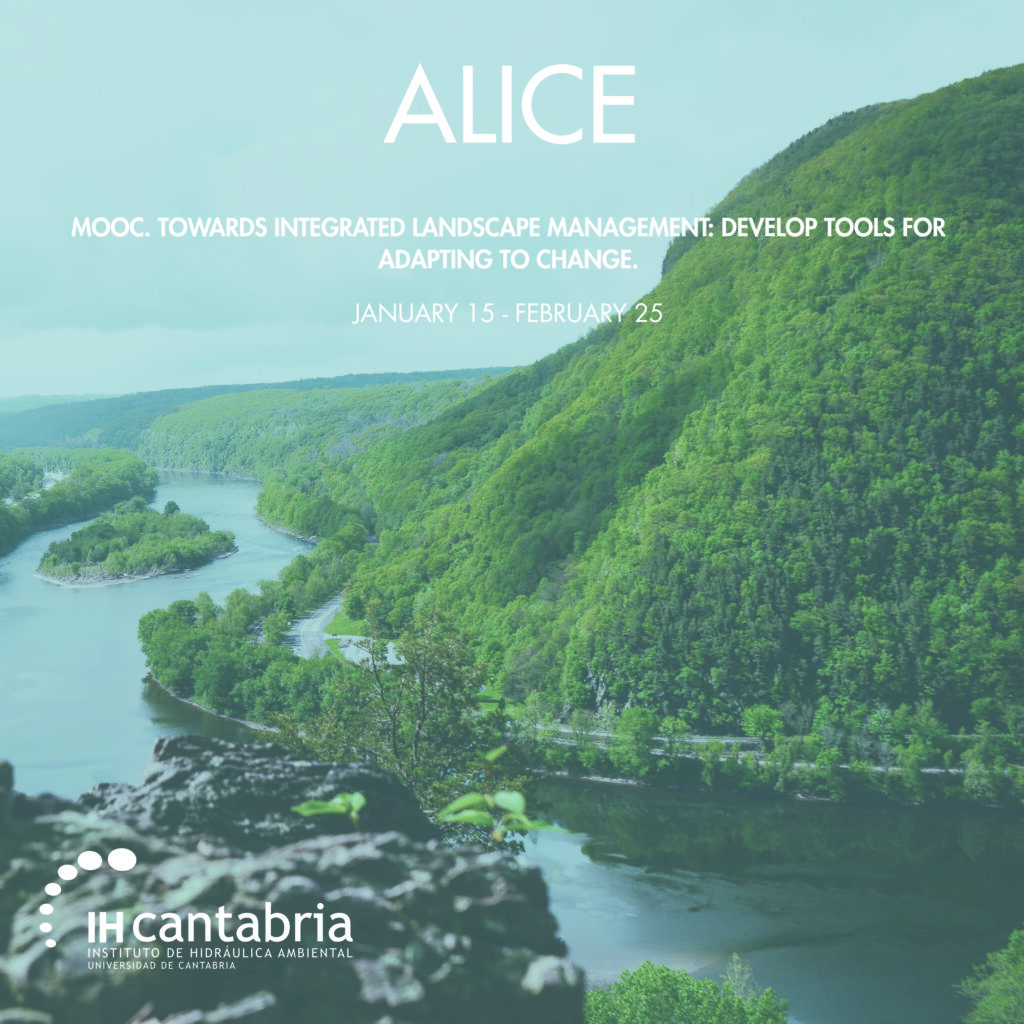MOOC: Towards integrated landscape management: developing tools for adapting to change.
An integrative landscape management approach incorporating socieconomic and climate change scenarios is critical to properly manage environmental risk and to secure biodiversity conservation worldwide.
1.1 An opportunity to improve: the actual environmental crisis & new policy forcings.
1.2 Governance and management of socio-ecological systems: Addressing interactions between humans and ecosystems.
1.3 Nature (and Hybrid) Based Solutions.
1.4 Nature Based Solutions: Blue and Green infraestructure networks.
1.5 On the importance of engaging stakeholders in BGIN development.
1.6 What are the potential barriers that BGIN design and implementation face?
2.1 Climate characteristics and climate change.
2.2 The characterisation of LULC cover dynamics.
2.3 Hydrological processes.
2.4 Erosion dynamics and catchment processes.
2.5 Water temperature.
2.6 Water quality components.
2.7 Connectivity.
3.1 Optical remote sensing fundaments for environmental monitoring
3.2 Climate modelling.
3.3 Land use and land cover change modelling.
3.4 Hydrological modelling. Conceptual lumped hydrological models.
3.5 Erosion models.
3.6 Water temperature models.
3.7 water quality models.
4.1 Habitat template for biodiversity.
4.2 The role of connectivity: Metaecosystems, Metacommunities, Metapopulations.
4.3 Terrestrial biodiversity patterns and factors.
4.4 Terrestrial biodiversity characterisation and modelling: habitat mapping.
4.5 Aquatic biodivesity patterns and factors.
4.6 Aquatic biodiversity characterisation and modelling.
4.7 Water quality components in the Water Framework Directive context.
5.1 Biodiversity and ecosystem management: an integrative landscape approach.
5.2 What are ecosystem fuctions?
5.3 Ecosystem function modelling.
5.4 What are ecosystem services?
5.5 Ecosystem service modelling.
6.1 A road map for collaborative assessment and participation learning.
6.2 Scenario development for evalutaion BGINs strategy.
6.3 Evaluation of scenarios’ outcomes for decision making.
6.4 Assembling the blocks: Multicriteria analyses for landsacape management.
6.5 The definition, documentation and analysis of success stories.
6.6 Payment for ecosystem services schemes.
6.7 The design of specific products assisting on implementing components of a BGIN.

